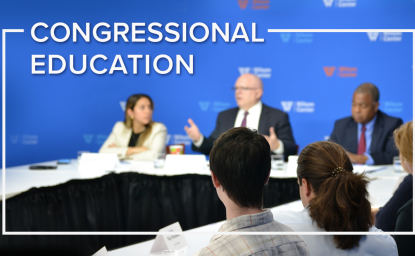The Latest
Turkey expects:
- The Trump Administration to be more sympathetic to its demands in Iraq despite the delicate nature of the anti-ISIS operations and the fragility of the government in Baghdad.
- The Trump Administration will quickly agree to extradite Fethullah Gülen, the Pennsylvania-based Turkish cleric whom they accuse of masterminding the July 15 coup attempt.
1. What is the greatest challenge facing the United States’ relationship with Turkey?
There are three important challenges facing the incoming administration. They all stem from the fact that the Turks have concluded that a future Trump administration will be sympathetic to Ankara on almost all issues, ranging from human rights to the Syrian quagmire and to Turkey’s regional ambitions.
The first of the challenges is the natural divergence of opinion on Syria and Iraq. Currently, U.S. priorities in those countries do not line up well with those of Turkey. The U.S.’s first goal, the destruction of ISIS, is not Turkey’s chief concern. Ankara’s first and foremost priority in Syria is to prevent the emergence or consolidation of a Kurdish entity in northern Syria led by the PYD, the Democratic Union Party. Turkish President Recep Tayyip Erdogan is willing to go to great extremes to achieve this goal, including intervening directly in Syria, potentially putting the anti-ISIS operations in jeopardy. In Iraq, Turkey will demand Washington allow its forces greater flexibility in its military operations and prevent Iraqi government-aligned Shi’a militias from taking Turkoman territory even if the latter is aligned with ISIS. Erdogan expects that unlike President Obama, the Trump Administration will be more sympathetic to its demands despite the delicate nature of the anti-ISIS operations and the fragility of the government in Baghdad.
Second, the Turks expect that the Trump Administration will quickly agree to extradite Fethullah Gülen, the Pennsylvania-based Turkish cleric whom they accuse of masterminding the July 15 coup attempt. Incoming National Security Advisor General Flynn published an article on Election Day that advocated precisely such action. However, the new administration will be quickly confronted with the reality that the courts have the final say and, therefore, the process will be long and unlikely resolved in Ankara’s favor.
Third, Turkish-European relations are deteriorating at breakneck speed. The onslaught on civil liberties and the persecution of the legal Kurdish party in Turkey is pushing the Europeans to maybe indefinitely suspend EU accession negotiations in the near future. Such a move is likely to hurt the Turkish economy and Ankara will be looking to Washington to support its thesis in European capitals. It is not clear that the Trump Administration will have any leverage on this issue given the reigning uneasiness in Europe with its stand on a number of issues.
2. What will the next president need to do to improve or fix these obstacles?
Given Turkish expectations, there is very little the incoming administration has on its plate to offer. It has a choice: offer only carrots or combine these with sticks to build up Washington’s credibility. In Syria, it can promise Ankara that it will prevent the Syrian Kurds from declaring autonomy and joining their three cantons. It can also promise to continue the fight to unseat Assad as well as greater consultations on the future of Syria and especially in its reconstruction. Turkish companies have a great deal to win from construction contracts in a post-Assad Syria.
As for Gulen’s extradition, the administration can offer greater cooperation; assign more judges, investigators, and prosecutors to the case and promise that it will not delay the execution of a decision from the courts that is in Turkey’s favor.
However, if the Trump Administration concludes that it needs to preserve an element of influence on Ankara, then it will also need to act in opposition to Ankara’s wide range crackdown on civil liberties. Offering Ankara a carte blanche will provide it with all the ammunition it needs to deepen the trend towards greater repression. Therefore, Washington can put a dent to this trend by strongly condemning the jailing of opposition parliamentarians, members of the press, academics and intellectuals and the general trend towards increasing authoritarianism . This is in the interests of the incoming administration because the resulting destabilization of Turkey could create new problems in the region.
On Europe, the ongoing negotiations over Cyprus represent the best hope to halt the alienation of Europe from Turkey. These negotiations have made genuine progress, and it would be incumbent on the new administration to support them and help both sides finally reach a solution.
3. Anchoring the U.S.-Turkish relationship
NATO has served as the anchor of the Turkish-U.S. relationship for six decades. A Trump Administration that recommits itself to NATO will signal to the Turks that the United States is serious about its engagement in the region. This will require some patient work given the uncertainty within the Turkish armed forces. Many generals and other ranking officers have been fired from the armed forces following the July 15 failed coup attempt. On the other hand, concerns from allies about Turkey’s commitment to NATO have somewhat diminished.
Guest

Senior Fellow, Council on Foreign Relations

Middle East Program
The Wilson Center’s Middle East Program serves as a crucial resource for the policymaking community and beyond, providing analyses and research that helps inform US foreign policymaking, stimulates public debate, and expands knowledge about issues in the wider Middle East and North Africa (MENA) region. Read more

Explore More
Browse Insights & Analysis
What Does the World Expect of President-elect Trump?

Promoting Convergence in US-Brazil Relations

360° View of How Southeast Asia Can Attract More FDI in Chips and AI



